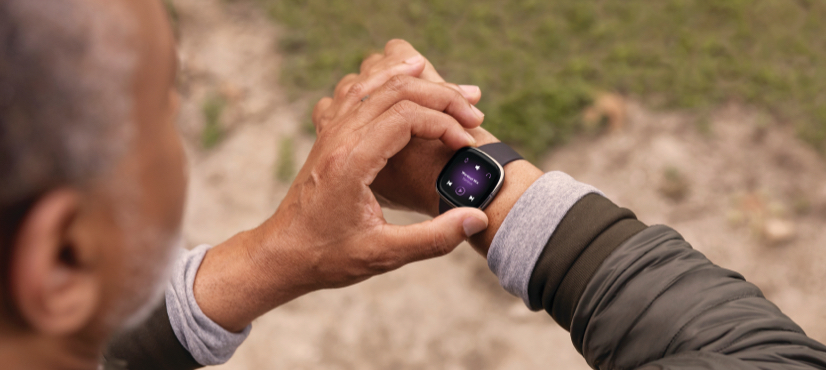New Study Shows Adding Fitbit Devices Boosts Outcomes of Health and Wellness Interventions
A number of studies over the past decade have demonstrated that adding the Fitbit experience, including a Fitbit tracker or smartwatch and the Fitbit app, to existing health and wellness interventions can help to improve enrollment and outcomes. For example, Solera studied 1,700 people who enrolled in Diabetes Prevention Programs through their platform in 2017 and found that those who redeemed a Fitbit device lost a larger percentage of their starting weight (3.38% vs. 2.27%) and were 1.4 times more likely to achieve 5% weight loss.
Two interesting questions stem from the findings across the studies:
1) Is the benefit of adding Fitbit to an intervention consistent, or does it only hold true for specific interventions?
2) Is the benefit specific to Fitbit, or is it generalizable to other wearable health devices?
The exciting news is that a recent comprehensive, independent review of the literature provides strong evidence that the benefit of Fitbit is consistent and that there is no proof of the same for other wearable health devices.
Researchers from several Canadian universities and the University of Illinois at Chicago conducted the systematic review and meta-analysis that was published in the high impact Journal of Medical Internet Research. They aggregated the results from 37 randomized controlled trials of interventions related to healthy lifestyles that, at minimum, included a study arm using Fitbit devices and a study arm not using Fitbit devices. These rigorous criteria, including randomization, helped to minimize the possibility that other variables about the participants influenced the results and made for fair head-to-head comparisons with and without Fitbit. The particular outcomes that they examined were physical activity, sedentary behavior, and weight loss.
The results of the analysis are incredibly exciting. The study arms of the interventions that included Fitbit produced a statistically significant increase in daily step count (approximately 950 more steps), increase in moderate-to-vigorous physical activity (approximately 6 more minutes of activity), and decrease in weight (approximately 1.5 kilograms = 3.3 pounds more weight loss) compared to the study arms that did not include Fitbit. They also produced a decrease in sedentary behavior (approximately 11 fewer sedentary minutes), although this finding was not statistically significant. Given that the analysis was done across all of the interventions, the findings suggest that these positive outcomes are not specific to certain interventions but that they are generalizable.
The researchers commented that they focused on evaluating the impact of Fitbit devices for a number of reasons. One of the most notable reasons was that prior research about the impact of interventions including wearables was inconclusive. They theorized that this lack of impact might be due to the fact that all wearables and their accompanying experiences are not created equal. Pooling them as a category brings the overall results down to the least common denominator. Given that theory, they needed to focus their analysis. They chose Fitbit devices because “they are among the most accurate commercially available wearables” and because “this brand is by far the most frequently included in interventional studies found in MEDLINE and ClinicalTrials.gov.”.
In the end, the hypothesis of the researchers proved true. Fitbit devices can boost the impact of health and wellness interventions. The same is not true when you group all wearables together because their experiences are quite different. The value that Fitbit users get from Fitbit is not just from the device tracking their activity, sleep, heart rate, etc. It stems from the entire experience in the Fitbit app, which includes goal setting, behavior change support, and learning experiences. And this is just the tip of the iceberg. Fitbit is investing in new capabilities, including Fitbit Premium and Fitbit Premium + Health Coaching, to maximize the success of users in improving health behaviors across the pillars of activity, nutrition, sleep, and stress management as well as to help manage chronic conditions such as diabetes and hypertension.
